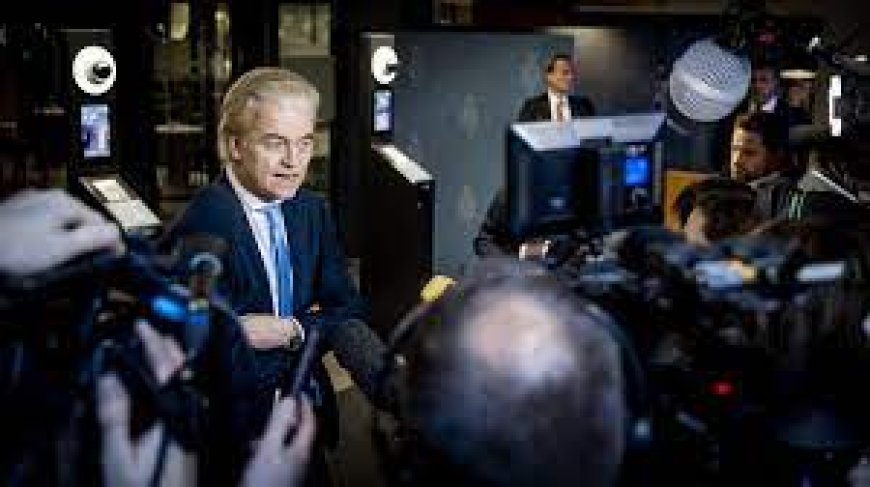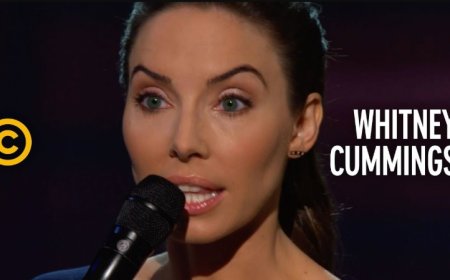Dutch Government Collapses: A Political Earthquake in the Netherlands

Introduction
In a dramatic turn of events, the Dutch government collapsed, sending shockwaves through the political landscape of the Netherlands and Europe. Political crises are not uncommon in parliamentary democracies, but the sudden breakdown of Prime Minister Mark Rutte’s coalition in July 2023 drew global attention. The collapse stemmed from sharp disagreements over immigration policy, a deeply divisive issue that fractured the coalition’s unity and trust. This article delves into the causes, reactions, and implications of the Dutch government’s collapse, providing readers with a comprehensive understanding of what transpired and what it means for the future of Dutch politics.
Background of the Government and Coalition Structure
The Netherlands operates under a parliamentary constitutional monarchy, where coalition governments are the norm due to the country's multi-party system. Mark Rutte, leader of the center-right People’s Party for Freedom and Democracy (VVD), led a four-party coalition that also included:
-
Christian Democratic Appeal (CDA)
-
Democrats 66 (D66)
-
Christian Union (CU)
This coalition was formed in January 2022 after a record-breaking 271 days of negotiation following the 2021 general elections. While the alliance managed to function through various crises such as COVID-19, energy instability, and climate-related debates, immigration became the breaking point.
Causes of the Collapse
1. Immigration Dispute
The core issue was the government’s inability to agree on how to manage immigration, particularly regarding family reunification for asylum seekers. The VVD proposed restricting the rights of refugees to bring family members, arguing that the system was overloaded. In contrast, the Christian Union and D66 opposed this move, citing human rights concerns.
2. Ideological Differences
Although coalition partners agreed on many economic and social fronts, the ideological gap between the progressive D66 and the conservative Christian Union created friction. Immigration served as the trigger, but deeper tensions had long existed.
3. Political Strategy
Some analysts suggest that Rutte may have intentionally allowed the coalition to fall in order to reposition his party ahead of upcoming elections. By breaking away from unpopular compromises, VVD could appeal to more conservative voters.
Timeline of Events Leading to the Collapse
| Date | Event |
|---|---|
| March 2021 | General elections held; no clear majority secured. |
| Jan 2022 | New coalition formed after 271 days of negotiations. |
| June 2023 | Internal disagreements emerge over refugee family reunification policies. |
| July 7, 2023 | Prime Minister Mark Rutte announces the collapse of the coalition. |
| July 10, 2023 | Rutte states he will not lead VVD in future elections. |
| Nov 2023 | Snap general elections announced and prepared for. |
Political Reactions
Domestic Responses
-
Mark Rutte: Shocked many by announcing he would retire from politics after the elections. After 13 years as PM, his departure marks the end of an era.
-
D66 and CU: Blamed VVD for pushing extreme immigration policies.
-
Far-right and Populist Parties: Parties like Geert Wilders' PVV and newcomer Caroline van der Plas' BBB gained momentum, seizing the opportunity to capitalize on voter frustration.
International Reactions
-
European Union: EU leaders expressed concern over the potential instability in one of its founding member states.
-
Neighboring Countries: Monitored developments closely, especially amid rising immigration debates across Europe.
Impacts of the Collapse
1. Domestic Governance
With a caretaker government in place, decision-making was limited. Major policy decisions, especially in climate, housing, and education, were put on hold.
2. Public Trust
The repeated collapse of coalitions in Dutch politics has led to increasing voter cynicism. Public trust in mainstream parties has eroded.
3. Rise of New Movements
The collapse opened the door for newer political movements like the Farmer-Citizen Movement (BBB), which appeals to rural and agricultural communities disillusioned by urban-centric policies.
Analysis: What Comes Next?
Key Scenarios Post-Collapse
-
Shift to the Right: With the VVD pivoting right and parties like PVV and BBB gaining strength, the next government could adopt tougher immigration and law-and-order policies.
-
Coalition Challenges: Even if right-wing parties gain ground, forming a coalition remains a challenge in a fragmented political landscape.
-
Leadership Vacuum: Rutte’s departure leaves a significant void. His experience and leadership have been central to Dutch politics for over a decade.
Major Political Parties Affected
| Party | Leader (2023) | Position on Immigration | Impact of Collapse |
|---|---|---|---|
| VVD | Mark Rutte | Restrictive | Attempted to lead change; lost. |
| D66 | Sigrid Kaag | Liberal, pro-refugee | Accused VVD of betrayal. |
| Christian Union (CU) | Gert-Jan Segers | Pro-family reunification | Refused compromise. |
| CDA | Wopke Hoekstra | Center-right | Lost popularity. |
| PVV | Geert Wilders | Strongly anti-immigration | Gained voter support. |
| BBB | Caroline van der Plas | Populist, farmer-based movement | Surged in popularity. |
Key Takeaways
-
The Dutch coalition government collapsed due to irreconcilable immigration policy disputes.
-
Mark Rutte announced his retirement from politics following the collapse.
-
The disagreement centered on restrictions to asylum seeker family reunifications.
-
Snap elections were scheduled for November 2023.
-
The collapse has fueled the rise of right-wing and populist parties.
-
Public trust in traditional coalitions continues to decline.
-
The next government faces the challenge of uniting a fragmented parliament.
-
Immigration will remain a hot-button issue in the coming elections.
-
The European Union is keeping a close eye on the Dutch situation.
-
The end of the Rutte era marks a turning point in Dutch politics.
Conclusion
The collapse of the Dutch government in 2023 was more than a political dispute—it was a reflection of growing divides within Western democracies over immigration, identity, and governance. As the Netherlands prepares for a new political chapter without the familiar leadership of Mark Rutte, the nation finds itself at a crossroads. Whether it chooses a more conservative, populist route or returns to centrist coalitions remains to be seen. One thing is certain: the political ground in the Netherlands has shifted, and its ripple effects will be felt far beyond its borders.





























